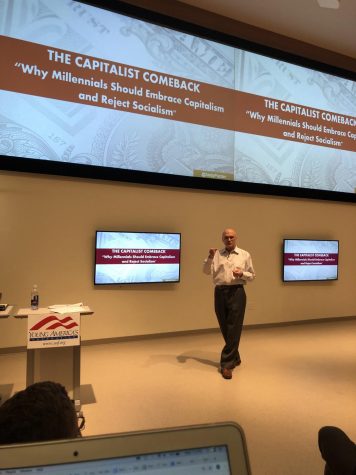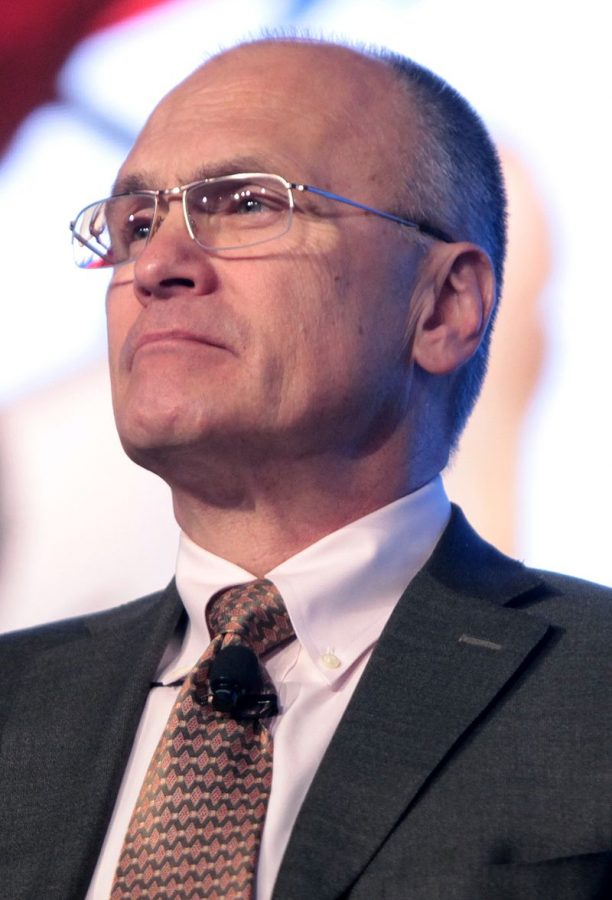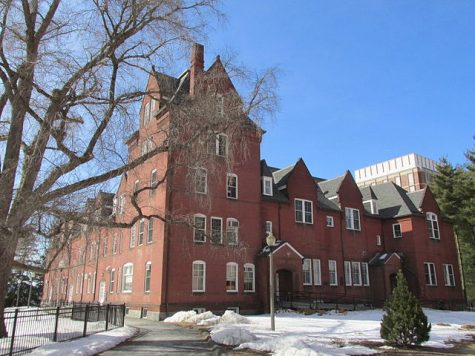Andrew Puzder, former Hardee’s and Carls Jr. CEO, discusses capitalism at UMass
Puzder discussed capitalism and his latest book, “The Capitalist Comeback: The Trump Boom and the Left’s Plot to Stop It.”
Andrew Puzder spoke to students at the Universite of Massachusetts on April 24 about the differences between capitalism and socialism. As the former CEO of CKE Restaurants Holdings, Inc, Puzder has experience with running a multi-million dollar business.
The event was hosted by Young Americans Foundation (YAF) and the College Republicans. There was also a UMass Alumni who donated a substantial amount to help host Puzder on campus.
Nick Consolini, President of the College Republicans, hoped this event would “open the debate [between Capitalism and Socialism] and allow Puzder to present his defense of capitalism.”
Consolini believes that there are few people on the UMass campus who are in favor of capitalism and hoped Puzder would show the benefits of America’s current economic system.
“Puzder has been in the industry and has seen capitalism at work,” Consolini said. “He’s someone who’s been in business and dealt with the needs of people on a daily basis.”
Puzder was an economic advisor to Mitt Romney during his 2011 presidential campaign. Puzder then became Donald Trump’s economic advisor and was later nominated as Secretary of Labor. Due to backlash from Congressional Democrats, Puzder withdrew his name for labor secretary.

Puzder considers himself as someone who has lived the American Dream. Puzder came from a working-class family — his grandfather was an immigrant from Austria-Hungary, and his dad was a car salesman and World War II veteran.
Part of the reason Puzder thinks young Americans have latched onto the idea of socialism is because they weren’t alive during the prime age of socialism in the 1940-1960s. For most millennials and generation Z students on campus, the fall of the Soviet Union is just something we read about in history books. “The USSR,” Puzder said in his talk, “collapsed under its own financial weight.”
Between then and now, socialism has taken on a new life. Puzder cited a 2010 Gallup poll that states 68 percent of 18 to 29 year olds think positively of capitalism and 51 percent have a positive view of socialism. In 2018, the same Gallup poll states that only 45 percent of 18 to 29 year olds have a positive view of capitalism.
“The basis that capitalism is based on greed and socialism is benevolent is not true,” Puzder said. The way to get ahead in a capitalist society, Puzder says, is by catering to the people. “In a capitalist system, you vote, with every dollar you spend, on which companies succeed and which companies fail.”
When it comes down to it, a capitalist economy has an abundance of products. There is no abundance of anything in a socialist country.
North Korea has a shortage of almost everything. There’s not enough food to feed their soldiers, let alone anyone else.
As recently as 2011, Venezuela was the richest country in South America. However, after their economy collapsed, Venezuelans have resorted to eating cats, dogs, pigeons, and more to stay alive.
Capitalism takes your desire to succeed and spreads it out to other people. It’s based on your ability to meet the needs of other people.
Socialism makes you focus inward. You are constantly competing for a set of goods that are controlled by the government.
Bernie Sanders, a Democratic Socialist, has been gaining more and more support. His movement started in 2016 when Sanders was vying for the Democratic Presidential nomination and is continuing through this election cycle.
His economic plans (Government-provided health insurance; free college tuition; a $15 minimum wage; stronger unions; high gas taxes; guaranteed parental leave) and call for the US to be more like Denmark has been questioned and criticized at every turn — maybe rightly so.
While giving an address at Harvard’s Kennedy School of Government in 2015, Danish Prime Minister Lars Løkke Rasmussen said, “I know that some people in the US associate the Nordic model with some sort of socialism. Therefore, I would like to make one thing clear: Denmark is far from a socialist planned economy. Denmark is a market economy.”
Sanders can point to Denmark all he wants for democratic socialist policies, but the fact remains that Denmark is a market economy — meaning they are a capitalist country but have more trust in their government.
“Capitalism has created incredible economic growth everywhere,” Puzder said.
Email Amelia at ameliamarcea@umass.edu.










